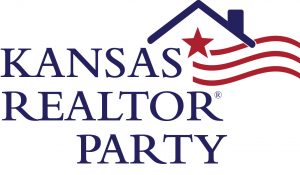
May 29th, the Kansas Legislature formally brought to an end the 2019 Legislative Session. The Kansas Association of REALTORS® (KAR) tracked more than 100 individual pieces of legislation, actively monitored 36 bills and testified 25 times this Session.
Going into the 2019 session, KAR had 5 legislative priorities and we saw success on 3. Below is a list of our 2019 priority issues and outcomes, along with other notable pieces of legislation that KAR was involved in this past legislative session.
1. Itemized Deductions.
Since the Tax Cuts and Jobs Act was passed in late 2017, KAR has advocated for changes in the Kansas tax code which would allow Kansans to itemize regardless of whether they take the increased Federal standard deduction. Current Kansas law only allows taxpayers to take the state-level itemized deductions (mortgage interest, property taxes, charitable contributions and medical expenses) if they itemize on their Federal return.
Most Kansans who have historically taken these deductions will no longer be able to do so because they have taken the higher Federal standard deduction rather than itemizing. The result is a higher state income tax liability, which has been estimated to be $156.7 million over three years.
Changes that would prevent this income tax increase were in Senate Bill 22 and later House Bill 2033, but were both ultimately vetoed by Governor Kelly
The Kansas House attempted a veto override on House Bill 2033 on the final day of the session, but fell 6 votes short of the necessary 84 votes needed to override.
It is not a coincidence that in April, individual income tax receipts were $69.8 million over tax revenue estimates and the May receipts for individuals were $67.9 million over estimates. Most agree that this extra tax revenue is a direct result of Kansas taxpayers not being able to itemize.
While it was disappointing that the necessary state response to Federal tax reform was not resolved in 2019 and this income tax increase will continue, the issue is far from over. We expect to advance the issue again in 2020.
2. Defend Recent Property Tax Reforms.
Over the years, KAR has been successful in enacting reforms to Kansas property taxes, whether bringing more fairness to the valuation and appeals process or empowering citizens with the ability to vote on certain property tax increases. Since these reforms went on the books, there have been efforts every year to repeal the reforms.
In 2019, we saw renewed efforts to add further exemptions to the law that gives voters the ability to vote on certain city and county budget increases. Examples are SB 191 and HB 2368 which would have allowed cities and counties the ability to increase their budgets by 20% from the immediately preceding year if the additional revenue from property tax dollars were spent on expenses related to transportation projects.
This exception, if allowed to be enacted and along with the other 15 exceptions on the books would have likely completely swallowed the rule that budget increases over the rate of inflation be put to a public vote. KAR opposed both of these bills because, as a policy, such exemptions assume that Kansas property owners are always willing to shoulder a property tax increase to cover costs associated with transportation projects. KAR argued that before making such assumptions, counties and cities first consider whether budgetary savings and efficiencies can be found to pay for such increases. If savings cannot be found to pay for these cost, then voters should have the opportunity to vote on the increase spending rationale of the city or county.
That being said, KAR does not take a hard line in opposing any new exemptions to the public vote requirement. This Session we ultimately supported bills that would have added two exemptions to the public vote requirement. One bill would provide an exemption for budget increases when a city or county absorbs a dissolving taxing entity. KAR supported this bill because its policy encouraged cities and counties to consider the positive effects of consolidating local taxing jurisdictions. This legislation, HB 2188, passed and was signed into law by Governor Kelly.
3. Home Inspector Regulation
There is an ongoing feeling within KAR that there are some home inspectors currently operating in the state that are not qualified to assist consumers and are providing unqualified and unprofessional advice to consumers in the very important and costly home-buying process. REALTORS® are fully accountable for any errors or omissions that may take place during the real estate transaction process. In a similar fashion, when problems arise during the home inspection process, consumers should have adequate remedies available to protect them from negligent or careless home inspectors.
That being said, KAR pursued legislation that would reenact regulations for home inspections. In 2019, KAR supported SB 168, arguing that it is increasingly important that consumers receive home inspection services from a qualified professional who will adequately identify defects and problems.
While KAR had productive discussions with all of the stakeholders, we simply ran out of time during the 2019 Session. SB 168 will be held over until next session. In the interim, KAR plans to address remaining areas of disagreement with the various stakeholders.
4. Rural Housing Incentive Districts.
KAR was successful in passing legislation, which enhances an existing tool used for rural housing development known as the Rural Housing Incentive District Act. The Rural Housing Incentive District Act provides cities and counties with a tool to encourage developers to build housing in rural communities by assisting in the financing of infrastructure.
Currently the financing and overall project length is capped a 15 years. By extending the time period to 25 years, we believe more housing projects will be viable in rural communities and new construction within the district will be more affordable.
5. Real Estate Licensing and Regulation.
This Session KAR supported legislation that increased the number of credit hours for pre-broker educational requirements in order to enhance the competency of the industry.
SB 60 increases the number of hours for a broker’s license from 24 to a minimum of 60. Furthermore, SB 60 would require that a licensee be actively engaged in real estate during 2 out of the previous 3 years (instead of 2 out of 5). This change puts an emphasis on recent real estate experience.
This legislation passed the Legislature and was signed into law by the Governor.
The increase from 24 to 30 hours for the real estate fundamentals course will take effect July 1, 2019. The new 30-hour real estate management course will be required on and after January 1, 2020.
Other issues to note
Rebates in real estate transactions
SB 42 was introduced by the Kansas Real Estate Commission and would provide a definition in license law for the term “rebate”, which is currently undefined. Currently, either giving a rebate or paying a referral to a third party, when it is known that third party pay a rebate. The purpose of SB 42 was to bring clarity to the law, specifically in light of a recent Kansas Attorney General’s Opinion on the subject.
KAR testified in support of SB 42, arguing that there is legal uncertainty in regards to rebates. This uncertainty needs to be eliminated because it clouds competition in the real estate industry leading to an unequal playing field. While the AG’s opinion does provide guidance, it should be noted that an attorney general’s opinion is not law similar to a judicial opinion. Therefore, KAR argued it would be best to have a codified definition.
The Senate Commerce Committee held a hearing on SB 42, but did not advance it out of committee during the Session.
Abandoned property
HB 2314 was introduced this year and hearings were held in House Commerce, Labor and Economic Development Committee. The legislation was very similar to previous attempts to amend the abandoned property laws with the intent of giving local communities more options in rehabilitating residential and commercial property that has been determined abandoned.
The alternative definition for abandoned property maintained a two-pronged test where the property would need to be continuously unoccupied for one year and be judicial determined to have a blighting influence as defined by the statute. KAR has been adamant that we would oppose any language where property could be abandoned due to non-use alone.
Amendments were put on to the bill in the House that would set up a process whereby property found to be abandoned could be sold similar to a judicial tax foreclosure sale and how proceeds from such sale would be allocated.
HB 2314 did pass the House, but did not receive a hearing on the Senate side during the Session.
Emotional support animals
KAR provided supporting testimony on legislation which would have brought needed guidance on the issue of emotional support animals for those involved in housing. This legislation is needed so that those seeking reasonable accommodation for their animals are not unnecessarily burdened, while at the same time, deterring fraudulent behavior.
While HB 2152 was introduced on the subject, KAR supported a draft substitute bill provided by the Kansas Association of Manufactured Housing. This draft would require individuals seeking an exception to a landlord’s policy on animals because of disability to provide written evidence to the landlord regarding the disability. This written documentation would need to come from a health care provider that has met with their patient in person. Furthermore, it would impose penalties for someone who misrepresents that they, or someone else, is entitled to an assistance animal. In addition, misrepresentation would be grounds for terminating the lease agreement under the Kansas Landlord Tenant Act.
The House Judiciary Chair requested the Kansas Judiciary Council to study this legislation, as well as other needed updates to Kansas guide and assistance animal laws, and provide a report back to the committee for the 2020 Session.
Property tax relief for seniors and veterans
This Session, KAR also supported legislation aimed at giving property tax relief for low-income seniors and disabled veterans through what is known as a “circuit breaker” program.
The benefit to this approach of property tax relief is that it is targeted to those most impacted by property tax increases and means tested. The targeted taxpayers considered within the program are likely to be living on fixed incomes and, as such, may find it very difficult to keep up with the pace of property tax increases and remain in their homes.
This legislation had hearings in both the House and Senate, but unfortunately only passed out of the Senate during the 2019 Session. It will be available for further consideration next session.
Concluding Remarks
The significance of the 2019 Legislative Session was the relationship between the Republican held Legislature and a new Democrat Governor – a political division that has not existed since Governor Mark Parkinson. While there was agreement between the Legislature and Governor on a school finance bill aimed to end years of litigation and an overall state budget, there was overwhelming disagreement on tax policy and Medicaid expansion.
It is likely that both tax policy and Medicaid expansion will be addressed during the 2020 Legislative Session. And, there is a strong chance that a bill on each will be agreed to and enacted. However, 2020 is an election year with all 165 Kansas House and Senate members up for election. The legislative process is certainly vulnerable to being thwarted by political gamesmanship. At KAR, we advocate for policy that benefits REALTORS®, aside from the politics of the day.





